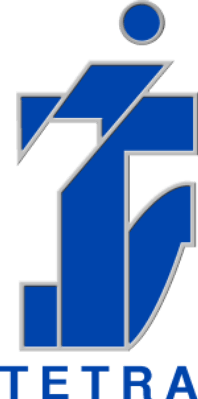What is a mail server?
MERN Stack is a Javascript stack for deploying full-stack web applications more easily and quickly. MongoDB, Express, React, and Node.js are the four technologies that make up the MERN Stack. It's intended to make the development process go more smoothly and efficiently.
Each of these four powerful technologies provides an end-to-end framework for developers to work in, and they all play an important role in web application development.
MongoDB
MongoDB is a document-oriented database that uses a NoSQL JSON-based query language to store data in flexible documents.
The content, size, and number of fields in two documents may differ. This makes the database incredibly versatile by allowing you to store data structures that can be easily updated over time.
Features:
- Highly Scalable in terms of data volume and throughput.
- It can be used to store data over multiple servers.
- Data is stored in flexible JSON-like documents.
- To work with database entries, use JavaScript.
- Master-slave replication is supported, and native apps are used to keep multiple copies of data.
Express
Express is a Node.js back-end web application framework that is both flexible and lightweight. It is frequently regarded as the de facto standard server framework for Node.js and may help you develop online apps and apps.
The technology also makes the process of writing server code easier. There's no need to copy and paste the same code as with the Node.js HTTP module.
Features:
- Known for its speedy and basic architecture.
- Can be used to create scalable web apps and APIs.
- Has built-in routers that aid in code reuse.
- Supports a plethora of plugins that offer sophisticated functionality.
- The technology is single-threaded and asynchronous.
React
React is a JavaScript package for creating user interfaces (UIs) and other UI components on the front end. The technology can be used to create simple web pages as well as full-fledged mobile applications.
Developers can use React to build massive web applications that can update data without reloading the page. A Facebook developer created the technology to keep track of Facebook views in HTML.
Features:
- For each DOM object, React makes a lightweight clone called a virtual DOM that contains all of the real DOM's properties.
- One-way data binding is supported for better data flow control.
- It's a component-based system, with component logic done in JavaScript rather than templates.
- React Native may be used to create apps for both Android and iOS.
- React is fast, scalable, and easy to use.
Node.js
Finally, there's Node.js, a JavaScript-based cross-platform back-end server runtime environment. It is based on Google Chrome's JavaScript engine, often known as V8. Developers can use it to build scalable network apps and even run JS code outside of their browsers.
Features:
- Built using V8 – Google Chrome’s JavaScript engine.
- All the data output is in chunks, and you will never experience any data buffers.
- App Node.js libraries are asynchronous – meaning Node.js servers don’t wait on APIs to return data.
- Uses a single thread model with even looping. This helps the server respond in a non-blocking way making it highly scalable.
- Can be used to create really powerful server-side applications.
Prerequisites for a MERN Stack application
You'll need two things to get started: nodeJS and npm. Installing them can be time-consuming, therefore we recommend going to their sites to do so.
You can create a MERN application on any of the operating platforms. All you have to do is follow the instructions for your operating system.
Finally, a code editor that can highlight JavaScript is required.
A MERN application can be constructed with all of these prerequisites and a few lines of code.
Why are industries adopting the MERN stack?
The MERN stack is quickly increasing in popularity in industries such as manufacturing, transportation, and healthcare. Implementing the MERN stack has the potential to improve the speed, accuracy, and reliability of applications across these industries. Here are just a few examples of industries adopting the MERN stack:
- Manufacturing: Implementing the MERN stack in manufacturing can help reduce the time it takes to create a new product, as well as improve the accuracy and reliability of existing products.
- Transportation: The MERN stack can help improve the accuracy of transportation applications.
- Healthcare: The MERN stack can help improve the speed and reliability of healthcare applications.
Contact us to learn what MERN Stack software development might look like for your organization. Allow our representative to either call you in 24 hours or E-Mail you for more details about our services - Click Here





